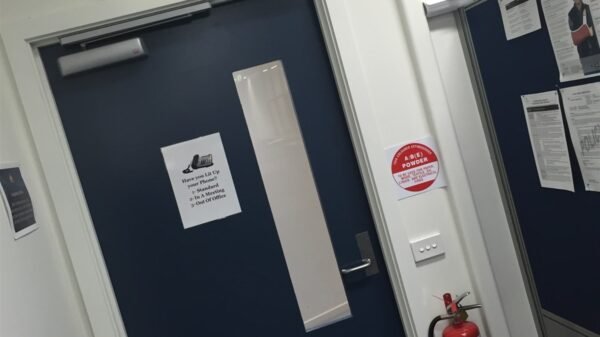Have you ever found yourself lost in the chemical formulas and equations puzzle, wondering if there’s a secret to mastering general chemistry? If unraveling the mysteries of atoms and molecules feels like navigating a maze, worry not as help is at hand.
Feeling overwhelmed by the jargon and complexities? You’re not alone. Many share this concern, and that’s why understanding the basics is your gateway to success.
In this article, we’ll explore seven practical tips to not just survive but thrive in the subject of general chemistry.
Build a Solid Foundation in Periodic Table Knowledge
Start by grasping the basics: understand periods, groups, and how atomic structure correlates with an element’s position. Recognize patterns – trends in electronegativity, ionization energy, and atomic radius. This knowledge isn’t just for memorization; it’s your toolkit for predicting chemical behavior.
As you delve deeper, appreciate the significance of each element’s placement. The periodic table isn’t a random assortment. It’s a carefully structured guide that unveils the properties and behaviors of elements.
This foundational knowledge becomes indispensable when tackling reactions, bonding, and understanding the properties of different elements. Think of it as the language of chemistry. The better you comprehend it, the more fluent you become in decoding the mysteries of compounds and reactions.
Invest time in periodic table drills and relate elements to everyday examples. Also, gradually watch as the seemingly intricate web of elements transforms into a comprehensible landscape. By solidifying your grasp on the periodic table, you’re laying the groundwork for a profound understanding of the chemical world.
Embrace Active Learning Techniques
According to Masterclass, active learning strategies improve students’ learning results by encouraging the development of higher-order thinking abilities. It deepens information retention and offers a chance for ongoing evaluation.
Students develop a better comprehension of the course material by solving problems, applying critical thinking skills, and engaging in metacognition. Collaborative activities foster creativity, empowering students to challenge ideas and devise inventive education methods.
Because they are actively involved in the learning process rather than just passively absorbing knowledge, students who participate actively are more motivated.
Instead of solely relying on textbooks, supplement your learning with interactive tools like online simulations, molecular model kits, or simple DIY experiments. Actively engage with the material, whether it’s visualizing molecular structures, participating in group discussions, or solving problems.
Master Chemical Nomenclature
Start by understanding the basics: naming and writing formulas for common ions and compounds. Recognize patterns in naming acids, salts, and binary compounds, as this knowledge lays the groundwork for more complex molecules.
Chemical nomenclature is more than a memorization exercise; it’s a systematic approach to conveying information. Each element and compound has a unique identifier, much like words in a language. Pay attention to prefixes, suffixes, and root words – they offer clues to the composition of a substance.
Practice regularly to reinforce your understanding, creating mental connections between names and structures.
Understand Molecular Geometry
Understanding molecular geometry is pivotal to mastering general chemistry, offering insights into how atoms arrange themselves in space. It’s not just about shapes; it’s a window into a molecule’s behavior and properties.
What’s more frustrating is that these molecular studies are often hard to comprehend. If you consider concepts like the BF3 Lewis structure, it is essential to examine the reactivity of these molecules.
Examining its structure, where boron has three valence electrons and forms three bonds with fluorine atoms, unveils a trigonal planar geometry. This information is also crucial in predicting its reaction and the molecule’s properties.
According to Proprep, mastering molecular geometry involves comprehending how bonding and non-bonding electron pairs influence a molecule’s shape. It goes beyond the BF3 example, extending to various compounds with different central atoms and bonding patterns. Molecular geometry directly impacts a substance’s polarity, affecting its interactions in chemical reactions.
To navigate this, immerse yourself in practical exercises, creating mental images of different molecular structures.
Practice Problem-Solving Regularly
Treat problems as puzzles, each offering a unique challenge to sharpen your analytical skills. Don’t avoid tackling various questions, from simple calculations to complex chemical reactions. Through consistent practice, you develop an intuition for approaching problems, discerning the essential information, and selecting the appropriate solution method.
Consider problem-solving as a workout for your chemical intellect. It’s not just about finding answers; it’s about understanding the thought process behind each solution. Work through examples in your textbooks, seek additional problems online, and collaborate with peers to expose yourself to different perspectives. This iterative process refines your problem-solving toolkit into a well-honed instrument.
Don’t fear mistakes; embrace them as opportunities to learn. Analyze your errors, understand the misconceptions, and reinforce your understanding. The more you wrestle with problems, the more resilient your problem-solving skills become.
Utilize Peer Learning and Study Groups
Chemistry can be a collaborative adventure where understanding deepens through shared insights. It ranges from study groups with classmates to exchanging ideas, questions, and diverse approaches to problem-solving. This collective effort transforms the learning experience from solitary to interactive, enriching your comprehension.
According to Indeed, setting defined goals and basing instructional strategies on learning objectives are essential for effectively implementing collaborative learning. It gives a clear understanding of the objectives by defining team assignments and communication guidelines.
Monitor groups while working together, step in when needed, and provide support to foster productive cooperation. After the meeting, set aside some time for introspection to promote enhanced teamwork abilities.
It can enhance learning and promote the ongoing development of collaborative abilities through group discussions and individual reflections through writing assignments or feedback surveys.
Leverage Technology for Visual Learning
Harness the power of technology to elevate your understanding of general chemistry through visual learning. Many visual aids provide a dynamic dimension to your learning, transcending the limitations of static textbooks.
Whether exploring a molecule’s anatomy or observing the behavior of electrons, technology transforms theoretical concepts into tangible experiences. Interactive software allows you to manipulate molecular structures, reinforcing your understanding of spatial relationships and geometry.
Forbes states that the components of extended reality (XR) that are becoming well-known in education include augmented reality (AR) and virtual reality (VR). One of the VR applications in modern-day times is the virtual classrooms for students. It makes it possible to offer in-person instruction and remote learning in a more engaging and hands-on environment.
While it differs from virtual reality, AR still needs a device (such as a phone, tablet, or headset). It entails overlaying artificially created visuals on the user’s genuine vision. It has the benefit of delivering and receiving information in real-time, which students can utilize in their present moment.
In addition, AR textbooks that include models and photos can now be purchased. When viewed through a smartphone’s camera, they “come alive,” giving pupils a closer look at how specific ideas operate.
Embark on a Curious Chemistry Expedition
In mastering the basics of general chemistry, remember that it’s a journey, not a race. Each tip shared here contributes to a solid foundation. Approach the subject with curiosity, embrace challenges as learning opportunities, and foster collaborative learning. Chemistry isn’t just about formulas and reactions; it’s a language, a puzzle waiting to be solved.





























































